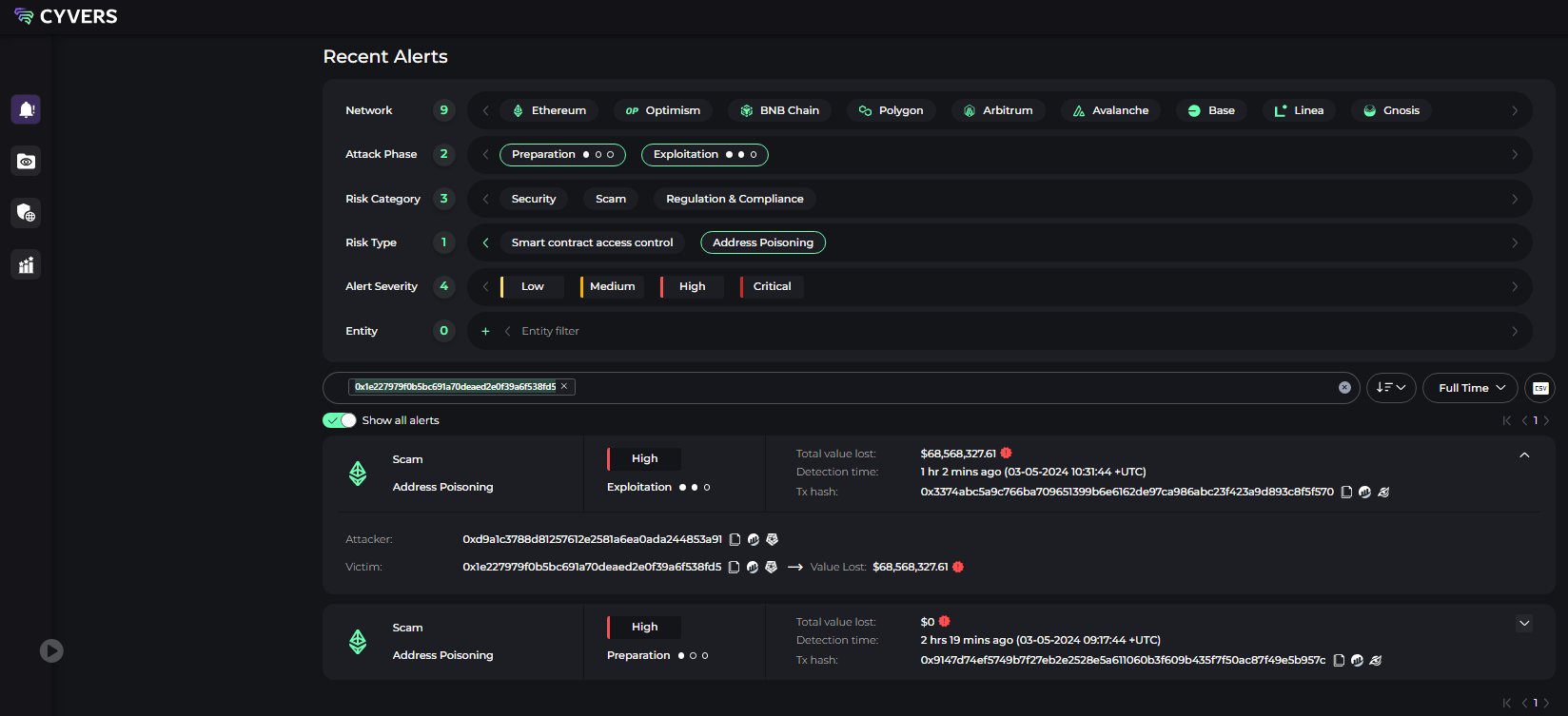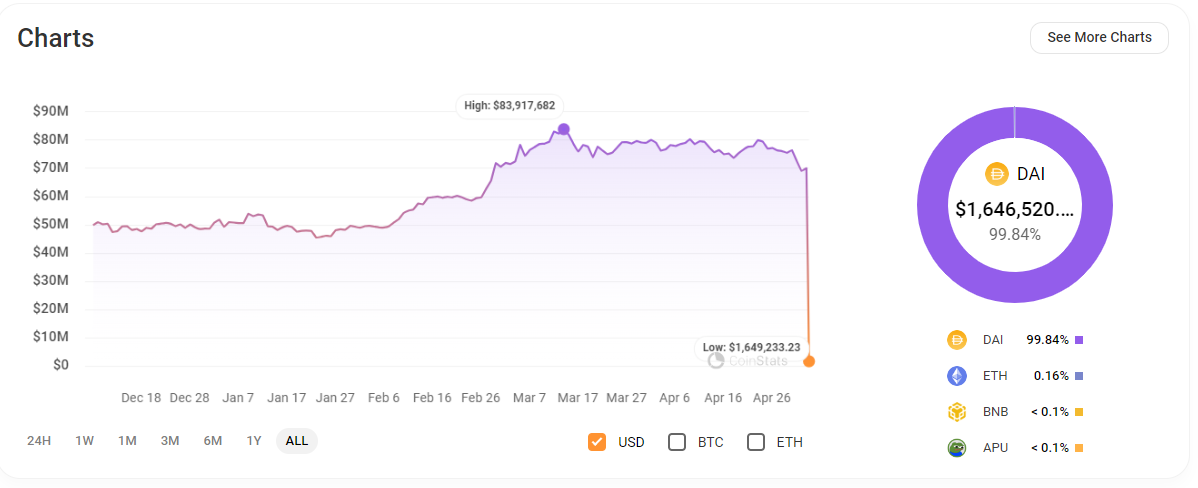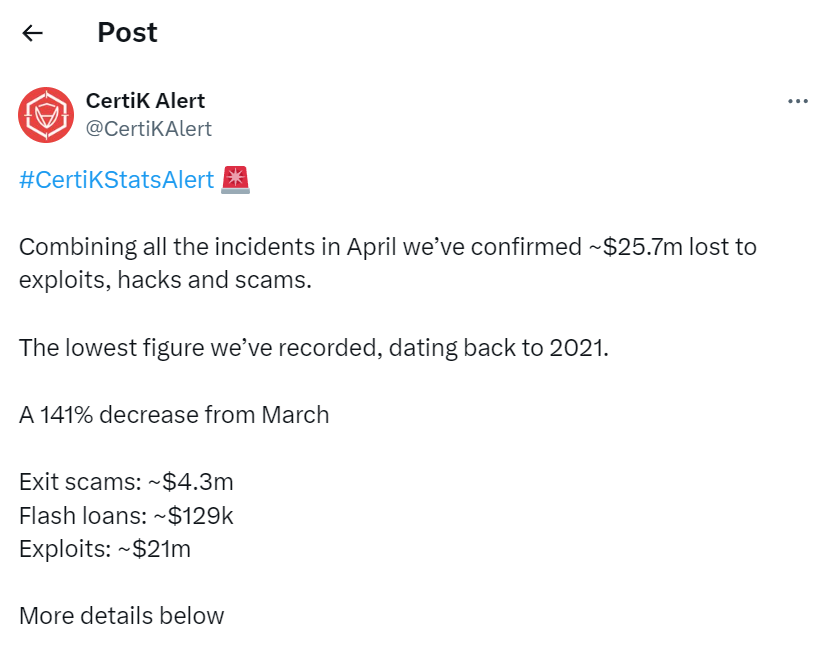Significant developments continue to emerge in the cryptocurrency market. Accordingly, an unidentified investor lost $68 million worth of Wrapped Bitcoin (WBTC) in a single transaction due to a scam method called address poisoning. The $68 million theft was first revealed in a post shared by blockchain security firm Cyvers on May 3.
68 Million Dollar Attack
In a post shared by blockchain security firm Cyvers via social media platform X, it was stated:
“Are we mistaken or did someone really lose $68 million worth of WBTC? Our system detected that another address fell victim to poisoning and lost 1,155 WBTC.”

According to another blockchain analysis platform CoinStats, the victim’s wallet “0x1E” lost more than 97% of its total assets, valued at over $67.8 million.

Address poisoning, also known as address spoofing, aims to exploit the carelessness and haste of investors during transactions. It involves deceiving victims into sending their crypto assets to fake addresses owned by scammers.
Crypto Market and Hack Incidents
Scams continue to shake mainstream confidence in the crypto industry. In April, investors lost at least $33 million in crypto assets in a fraud case surrounding the ZKasino platform. Dutch authorities arrested a suspect in the ZKasino fraud on April 29.
Despite the ZKasino incident, only $25.7 million worth of cryptocurrency was lost due to fraud and hacking in April. This marks the lowest historical figure since blockchain data analysis company CertiK began tracking data in 2021.
According to the report, losses from hacking, exploiting vulnerabilities, and scams decreased by 141% compared to the previous month. The decline is mostly due to a lack of private key compromises. Only three private key leaks were observed in April, and more than eleven attacks occurred in March through the capture of private keys.

However, CertiK’s figures do not include the $33 million ZKasino fraud. Although the report considers the project to be in the midst of a controversy, it has not yet classified it as a fraud. On April 22, ZKasino transferred all 10,515 Ethereum deposited by investors to the Lido staking protocol, intensifying investor concerns. CertiK’s report stated that the firm would update its figures if ZKasino is confirmed as a malicious actor.

 Türkçe
Türkçe Español
Español









